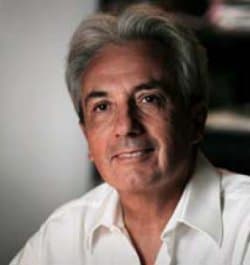
Albert Fert: who will be the next winner?
By Hamish Johnston
Earlier this week I was at a Royal Society meeting on spintronics to film the latest in our series of interviews with high-profile physicists.
My first interviewee was the Nobel laureate Albert Fert, who shared the 2007 prize for his work on giant magnetoresistance. I asked Prof Fert for his predictions for this year’s prize — which will be awarded next Tuesday — and he tipped his Orsay colleague Alain Aspect.
In 1981, Aspect and colleagues were the first to demonstrate quantum entanglement at a distance — as defined by the violation of Bell’s inequality. Since then physicists including David Wineland, Peter Zoller, Juan Ignacio Cirac and Anton Zeilinger have invented ways of using entanglement as the basis of quantum cryptography and nascent quantum processors.
Indeed, Zoller and Cirac have been tipped by Thomson Reuters for the prize.
So how about Aspect plus two of Zoller, Cirac, Zeilinger or Wineland for this year’s award? But how to choose — and is it too early for a quantum-information prize, which will surely be given some day?
Another suggestion that came up in London is a prize for the 1995 discovery of the first planet orbiting a star other than the Sun. A long shot — but it would have exoplanet pioneers Michel Mayor and Didier Queloz packing their DJs for Stockholm.
What do folks around here think?
James Dacey predicts quantum cryptography — and Anton Zeilinger in particular.
Michael Banks says “Saul Perlmutter and Brian Schmidt for discovering that the expansion of the universe is accelerating. Outside bet is Andre Geim and Konstantin Novoselov for the discovery of graphene.”
“Yakir Aharanov for the Aharanov-Bohm effect and Michael Berry for the Berry phase,” says Physics World supremo Matin Durrani. “If I keep saying it often enough, it surely will happen. This year marks the 50th anniversary of the AB effect and 25 years since Berry’s paper so the timing is appropriate.”
So, what do you think?



